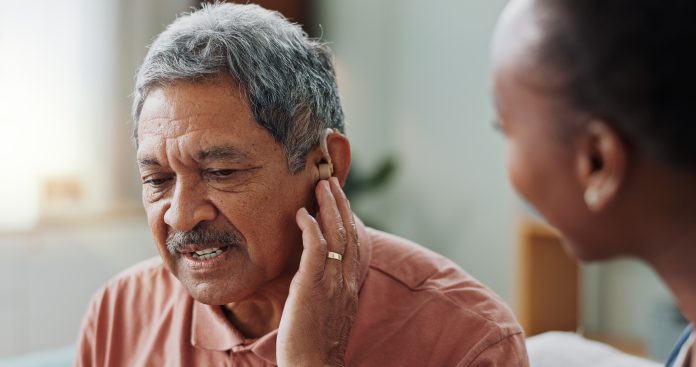Consultant Forensic Psychiatrist Dr Alex Hamilton emphasises the need for significant changes to better support mental health needs of Deaf people
I am a consultant forensic psychiatrist for Deaf people and a child of a Deaf adult (CODA). My first encounter with a Deaf individual in mental health services occurred during my final year of medical school. I met a profoundly Deaf man, fluent in British Sign Language (BSL), who was detained under Section 2 of the Mental Health Act (MHA) in a hearing Psychiatric Intensive Care Unit.
He lacked access to BSL interpreters or staff who could communicate with him or understand his mental state. As I could sign, I assessed his condition and was struck by the signs of his acutely manic state reflected in his BSL. Unfortunately, he couldn’t receive the proper assessment and treatment he needed due to inadequate support for Deaf individuals in the mental health system.
Now, nearly 20 years later, my experience and that of Deaf people with mental health problems have not moved on that much. I regularly come across Deaf people who have been detained in inpatient psychiatric wards with no access to meaningful communication. They have no means of getting support or expressing their distress other than through their behaviour, which can be misunderstood.
I am aware of MHA assessments which have detained Deaf people, where there has, astonishingly, been no BSL interpreter or use of professionals who can sign fluently. I am aware of other MHA assessments where no effort has been made to speak to the Deaf person, and the evaluation has been completed by only speaking to hearing people around them.
I have seen many misdiagnoses, where Deaf people have been given life-changing diagnoses based on a non-existent or inadequate assessment or even just an assumption by a professional.
I’ve also seen many missed diagnoses when very unwell Deaf people have been labelled as ‘difficult’ or that they are prone to ‘challenging behaviours’ when, in fact, they have a treatable mental illness.
It is all too common that, despite BSL being a rich, full, and legally recognised language of the UK, the mental state examination and risk assessment of Deaf patients is limited to that which a mainstream clinician can observe without meaningful communication, exploration of the Deaf person’s symptoms and experiences, or their internal world, as no BSL interpreter has been provided.
England has some of the best specialist Deaf mental health services globally, yet we often fail to assist Deaf individuals with mental health issues
Deaf people experience a higher burden of disease from mental disorders than hearing people. There are higher rates of mental illness and learning disabilities in Deaf people compared to the hearing population. There are very high rates of trauma in Deaf people; we studied exposure to adverse childhood experiences in different patient groups in the large psychiatric hospital where I work, and our Deaf patients had the highest levels of exposure of any patient group.
Despite this high level of morbidity, Deaf people face huge system barriers to accessing appropriate care and support due to a combination of the inaccessibility of our systems to Deaf people; an example of this very real problem is if a Deaf person needs to phone a GP receptionist for an appointment.
There is a significant lack of awareness among healthcare professionals as to the needs of Deaf people and how to meet them. We must ensure our Deaf patients can access BSL interpreters and appropriately adapted treatment interventions. We need to ensure that treatment options available to hearing people are also available to Deaf people; there are still no Deaf accessible psychiatric intensive care units (PICUs) in the country.
This failure has condemned many Deaf people to suffer mental ill health and all that goes with that. This includes shortened life expectancy, loss of opportunities, breakdowns of family relationships, and incarceration, which would have been proactively assessed and treated if they were hearing. This has, and continues, to waste lives.
England has some of the best specialist Deaf mental health services globally, yet we often fail to assist Deaf individuals with mental health issues. Mental health professionals must recognise that treating Deaf individuals requires specific expertise that differs from mainstream psychiatry. We must ensure Deaf people are quickly assessed in their preferred communication method by qualified professionals, aiming to minimise disability and enhance recovery.
There is a lot to change; I hope it does not take another 20 years.











